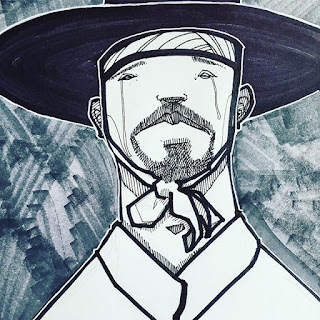On Systemic Suffering
A week has passed since America saw its most divisive, vitriolic, rhetoric-infused election in modern memory. My generation saw the promises and hope brought by a charismatic young President of color overwhelmingly silenced by the angry masses of (overwhelmingly) white voters from a continuous stretch of our country gathered and participating from Arizona to Pennsylvania. The news of hate crimes, the images of protestors lighting up the streets, and the inevitable reaction by armor-clad militarized police forces filled my screens as I watched our nation react. Friends and family shared their terror, their fear, their anger, their grief. I saw everything from escapism (Bible verses and an injunction to trust in God) to scapegoating. I had to quit my presence on social media.
As for me, I sat, stunned, shocked, and angry. But, as I assessed my emotions in the aftermath, facing the prospect of a Presidency presided over by a racist, xenophobic, misogynistic bully named Donald J. Trump, I had to be honest.
I am not surprised.
To those of us acquainted with the particular kind of sin embodied in our economic, social, and yes, political structures, this election proved one very likely outcome of a continuing trend towards division. As soon as a voice loud enough to rally behind paints a picture that capitalizes on our fear, we feel more secure. The dualistic mind, unable to handle the complexity of morality present in every person, cuts clean lines with categories of inclusion and exclusion. Looking back to the first violence embodied in Abel's death (I owe much to Miroslav Volf for this), our biblical narrative reminds us that this type of exclusion leads to our death, our exile, our itinerant life beyond the gates of Eden. As Cain wanders the world he builds the first city, a telling portrait of how the biblical writers viewed the earthly embodiments of economic and political power. Politics itself evolves out of a necessity to regulate economic activity, and is therefore tied, in our classical understanding, to the threat of scarcity. Our Western world is built on this premise, and empires have risen and fallen to protect the resources that have upheld these economies. In the past it has been silver, gold, coal, and oil. In the future it will be water and arable land.
Through the rise and fall of these structures, people have been used to fuel the fire of progress. Those deemed less than human by decree or religious perspective (the Crusades, the Doctrine of Discovery, and the exclusion of Natives, women, and blacks from the Declaration of Independence) are discriminated against not just by the individual, but by the entire system. When racism is brought up in white majority contexts you can expect a defensive and suspicious reaction. White people do not want to be labeled racist, and it rubs against their sensibilities that our society is just and free. Yet people of color have always known that racism is alive and well, hidden in the microaggressions that fuel so many interactions between ethnic groups, and embodied in the vast swaths of segregated cities and inequitable access to resources, in the Native reservations with settlements resembling third world squatting camps. This is a history hidden in the pages of our history books. Even the brutal and shameful transatlantic slave trade was treated, in my own second grade classroom in Virginia, as little more than a distant memory with no bearing on the present.
Now, as a vocal white supremacist is elected to the President's chief of staff, and a laughable assembly of puppet archconservatives take their assigned positions of power, the task that rises before conscious citizens is clear. Many of my peers hastily put up the hashtag #NotMyPresident to voice their opposition. This, in my mind, is another form of denial. Like it or not, your participation in the economy of this country means that you subject yourself to its political regulation. And, with a history as checkered and a foundation as corrupt as that of our country, this participation comes at a cost to those historically limited in their power. Yes, black people, women, and others can vote, buy homes, and run for office. But the slain martyrs of the past (Martin, Malcolm, Harvey, and others) have not fought in vain, and although the past is riddled with blood, it is right to work for a just society.
The week before the election I was taught by a Native activist who encouraged me that, should Trump win, the task of the Church actually becomes much more straightforward. We see the racism, the exclusion, and the hatred, and we can face it head on. Should Clinton have won, that battle would still need to be fought, only wrapped more tightly in the complexities of a neoliberal executive branch. Ultimately our nation's legitimacy will be scrutinized. The American evangelical church has already chosen, by a margin of 81%, to vote for Trump. As horrified as I am by this, the church has always had a shaky relationship with power. I hope this will be a wake-up call for the church. Although my ties to evangelicalism grow ever thinner, I still own my heritage. As Augustine quipped, "The church is a whore. But she is my mother."
May we be a people that refuse to act out of hatred, bullying, or aggression. May we be a people of peace, of justice, of welcome: for the sake of the refugee who comes to our shores, for the sake of the immigrant risking their life for the hope of a better future, for the sake of the queer young people who have questioned whether or not they are created in God's image.
Lord Jesus, come, make your Presence known.

Comments
Post a Comment